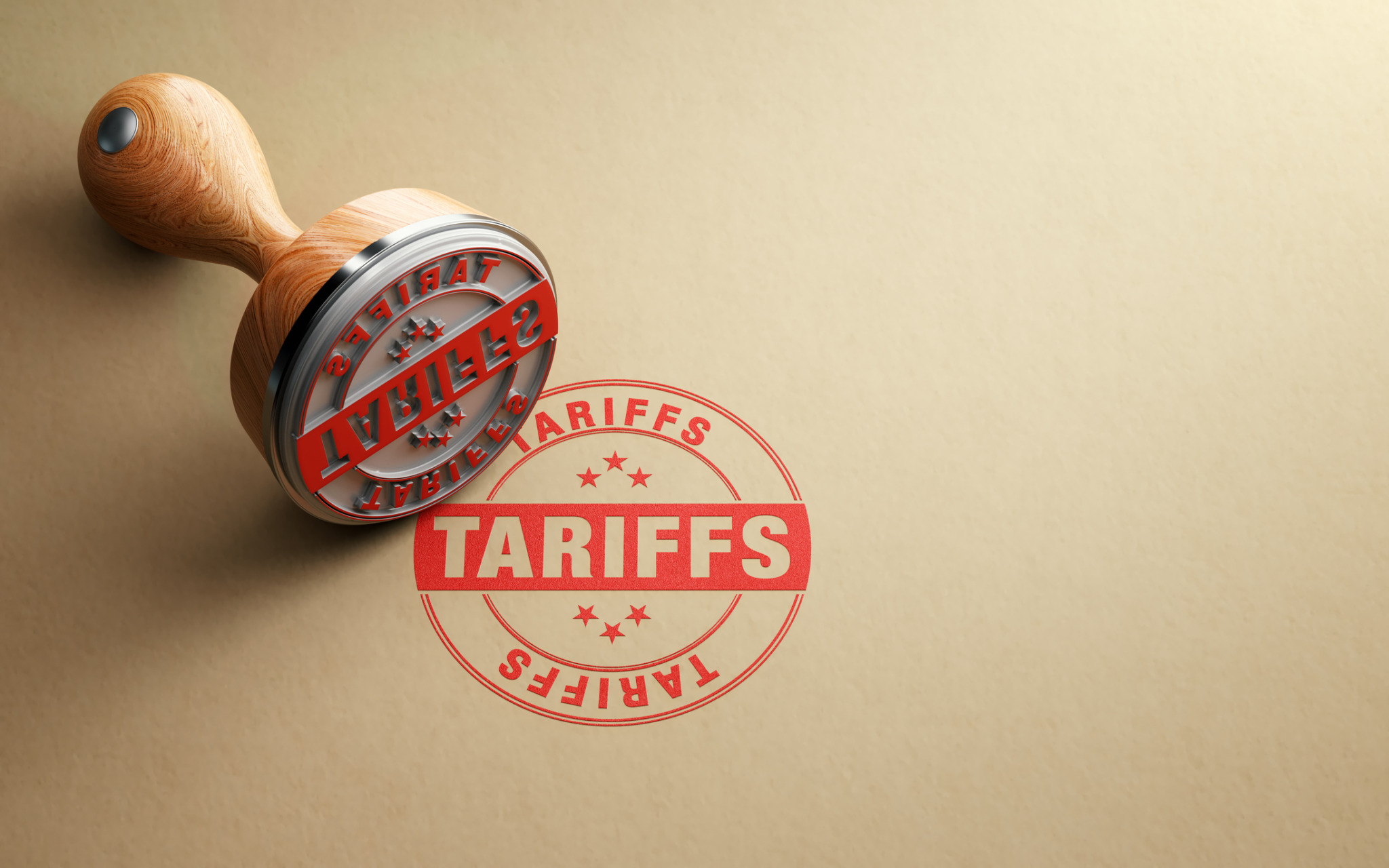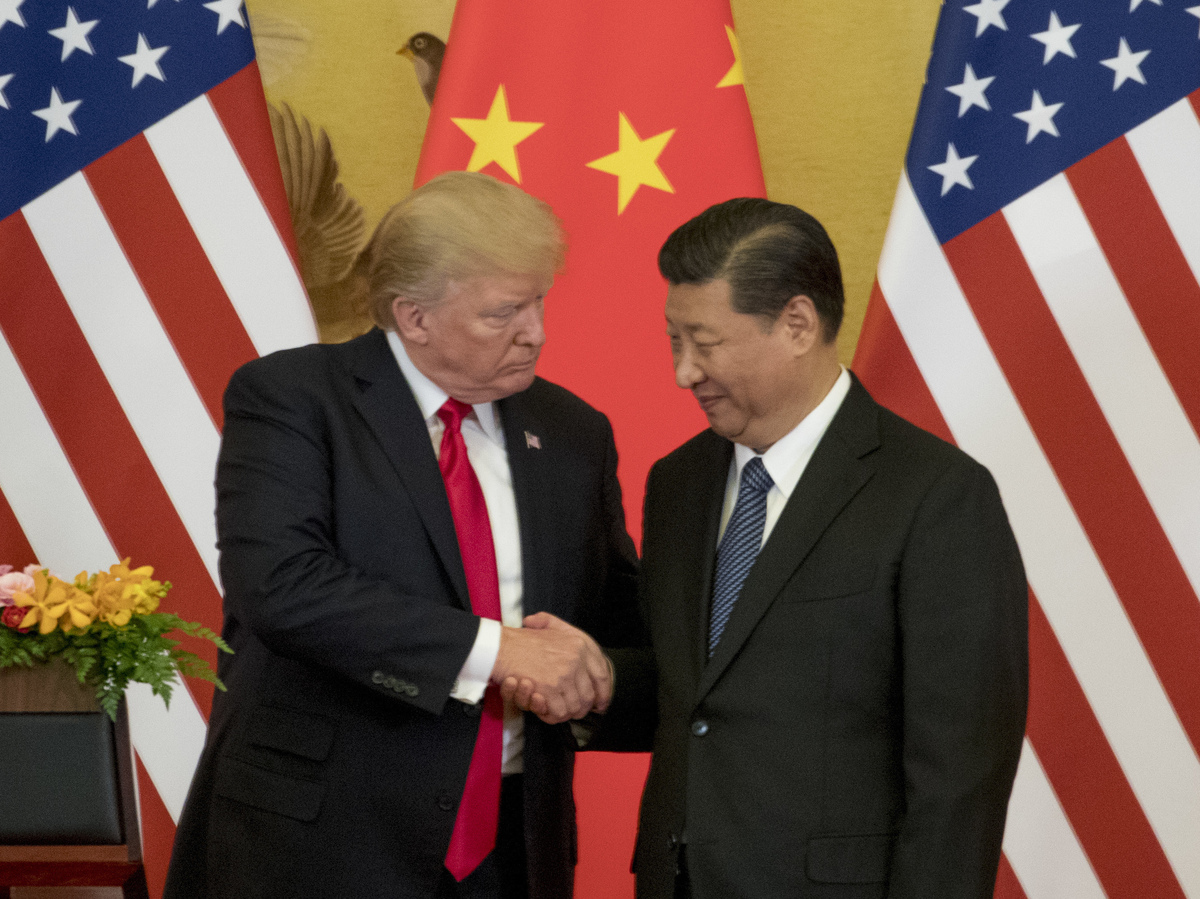Potential Tariffs On Aircraft And Engines: Trump's Latest Trade Move

Table of Contents
The Rationale Behind the Proposed Tariffs
The proposed tariffs on aircraft and engines are rooted in a long-standing trade dispute between the US and the EU, primarily focused on alleged unfair subsidies provided to Airbus and Boeing. This dispute has been simmering for years, involving multiple investigations by the World Trade Organization (WTO).
-
WTO Rulings and Subsidies: The WTO has ruled against both Airbus and Boeing, finding that both companies have received illegal government subsidies. However, the dispute escalated significantly when the US government announced retaliatory tariffs in response to what it perceives as continued unfair subsidies provided to Airbus by the European Union.
-
Accusations of Unfair Trade Practices: The US accuses the EU of providing substantial illegal subsidies to Airbus, giving it an unfair competitive advantage in the global aircraft market. These subsidies allegedly distort the market and harm US manufacturers, particularly Boeing.
-
Retaliatory Measures and Implications: The proposed tariffs are a direct retaliatory measure against the EU's alleged unfair trade practices. These tariffs could lead to further escalation, with the EU potentially imposing its own retaliatory tariffs on US goods. This tit-for-tat exchange could severely damage international trade relations.
-
Political Motivations: Beyond the economic arguments, political motivations undoubtedly play a role. The tariff announcement could be viewed as a strategic move in the ongoing trade war between the US and several other countries, serving as a lever in broader trade negotiations.
Impact on the Aviation Industry
The potential impact of aircraft tariffs and engine tariffs on the aviation industry is substantial and multifaceted. It extends beyond the immediate manufacturers, affecting airlines, suppliers, and the broader global economy.
-
Impact on Boeing and Airbus: Boeing, being a major US aircraft manufacturer, would likely be indirectly impacted by the tariffs, though less directly than Airbus. Airbus, a European manufacturer, would likely face significant challenges from increased tariffs on aircraft exports to the US. This could affect their production plans and profitability.
-
Airline Profitability and Aircraft Costs: Airlines would face higher costs for new aircraft, potentially impacting their profitability. These increased costs could lead to reduced investment in new aircraft and potentially limit expansion plans.
-
Supply Chain Disruptions and Delays: The imposition of tariffs could disrupt global supply chains. The aviation industry relies on a complex network of suppliers across the globe, and tariffs could lead to delays in aircraft deliveries and increased production costs.
-
Impact on Aviation Jobs: The uncertainty surrounding these tariffs could lead to job losses in the aviation sector, impacting both manufacturing and airline operations. Reduced demand for new aircraft and potential airline bankruptcies could significantly affect employment numbers.
Specific Effects on Airlines and Consumers
The impact of these potential tariffs extends directly to airlines and consumers, leading to a potentially less competitive and more expensive air travel market.
-
Increased Ticket Prices: The increased costs for airlines, owing to higher aircraft prices, are likely to be passed on to consumers in the form of higher ticket prices. This could make air travel less accessible to some, especially budget travelers.
-
Reduced Competition and Consumer Choice: Tariffs could lead to a less competitive market, potentially reducing consumer choices for airlines and destinations. Smaller airlines may be disproportionately affected, potentially leading to consolidation within the industry.
-
Broader Economic Impact on Travel: The higher costs and reduced competition could have a ripple effect, impacting the broader travel industry, including tourism and related sectors.
International Reactions and Global Implications
The proposed tariffs have sparked significant international reactions, raising concerns about the future of global trade relations and the global economy.
-
Reactions from Other Countries and Organizations: Other countries and international organizations, including the WTO, have expressed concern about the potential negative impact of the tariffs on global trade. These concerns highlight the potential for retaliatory measures and escalating trade tensions.
-
Potential for Retaliatory Tariffs: The EU and other countries are likely to retaliate with tariffs of their own, potentially targeting US goods. This could lead to a broader trade war, with severe consequences for the global economy.
-
Implications for Global Trade Relations: This trade dispute underscores the growing challenges to the multilateral trading system. The use of tariffs as a tool for resolving trade disagreements threatens to undermine international cooperation and global economic stability.
-
Potential for Diplomatic Solutions: While the situation appears tense, there is still potential for diplomatic solutions and de-escalation. Negotiations and diplomatic efforts will be crucial to finding a mutually acceptable resolution and preventing further escalation of the trade war.
Conclusion
The potential imposition of tariffs on aircraft and engines represents a significant escalation in global trade tensions. The impact extends far beyond the aviation industry, affecting airlines, consumers, and international relations. The long-term consequences remain uncertain, highlighting the need for diplomatic solutions and a reevaluation of global trade policies. The interconnectedness of the global economy means that resolving the aircraft and engine tariff dispute is critical for stabilizing international trade and fostering global economic growth.
Call to Action: Stay informed on the latest developments regarding aircraft and engine tariffs. Understanding the complexities of this trade dispute is crucial for navigating the evolving landscape of international trade and its impact on the aviation industry. Regularly check reputable news sources for updates on potential aircraft tariffs and their global implications.

Featured Posts
-
 Trumps 10 Tariff Threat Conditions For Exceptions
May 10, 2025
Trumps 10 Tariff Threat Conditions For Exceptions
May 10, 2025 -
 Brutal Racist Killing A Familys Struggle For Healing And Accountability
May 10, 2025
Brutal Racist Killing A Familys Struggle For Healing And Accountability
May 10, 2025 -
 Dijon Adoption Du Projet De Concertation Pour La Ligne 3 De Tram
May 10, 2025
Dijon Adoption Du Projet De Concertation Pour La Ligne 3 De Tram
May 10, 2025 -
 Trumps Threats Greenlands Closer Ties With Denmark
May 10, 2025
Trumps Threats Greenlands Closer Ties With Denmark
May 10, 2025 -
 Elon Musks Net Worth Falls Below 300 Billion Tesla Troubles And Tariff Impacts
May 10, 2025
Elon Musks Net Worth Falls Below 300 Billion Tesla Troubles And Tariff Impacts
May 10, 2025
